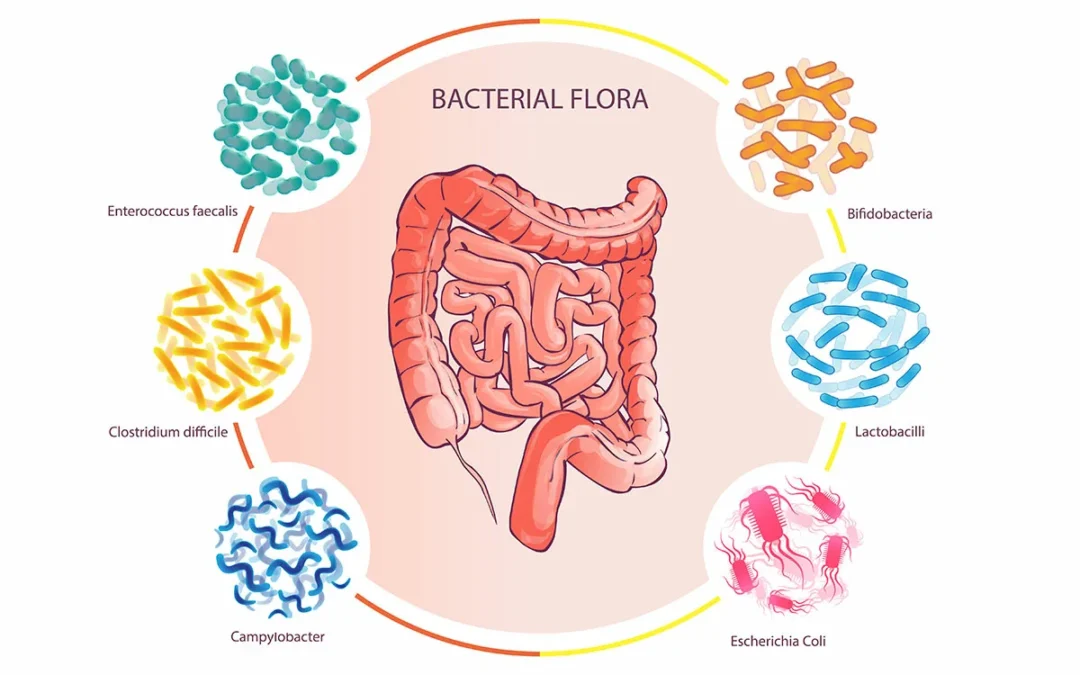Antibiotics have given undeniable health benefits in the field of medication since their disclosure. However, these meds unpredictably assault friendly microscopic organisms in the stomach. Therefore, learning how to restore gut health after antibiotics is crucial.
Antibiotics also add unfriendly, infectious microbes. This fact further emphasizes restoring gut health to normal. This alteration of the gut flora can result in several health problems.
IVitalityMD presents a detailed guide on how to restore gut health after antibiotics using the simplest methods that might already be in your routine.
Read about retatrutide peptide
Why Do Antibiotics Affect Digestive Health?
Antibiotics are intended to counteract pathogenic bacteria. However, one drawback is that they can unintentionally destroy helpful microbes in the gastrointestinal tract (GIT).
Beneficial gut microbes play a friendly role in the breakdown of food and the absorption of vital nutrients. The imbalance caused by antibiotics may result in digestive problems.
Nutrient deficits are a potential consequence of the decline in these good bacteria, which are essential for preserving general health.
Find out how many mg is 40 units of semaglutide.
How to Restore Gut Health After Antibiotics?
The following are some of the easiest ways to restore your gut microflora to its original condition.
Determine the Degree of Gut Damage
It is critical to comprehend the degree of gut harm antibiotics bring. Even if it’s impossible to measure precisely, there are a few things that can help you assess the extent of damage:
Type of Antibiotic
Unlike narrow-spectrum medications, broad-spectrum antibiotics have the strength to negatively impact the gut microbiota. They are frequently used when a particular infectious microorganism is unclear.
Duration and Frequency of Antibiotic Courses
Greater harm to gut health usually results from more prolonged and more frequent antibiotic therapy.
Age of the Patient
The early years are critical for developing a healthy stomach in children. During this time, improper antibiotic use can harm their gut microbiota in the long run.
Consume Probiotics
Restoring friendly microorganism colonies in the stomach requires probiotics. However, their viability changes from one individual to another.
Probiotics are beneficial to the health of the stomach despite some common misconceptions.
During and after antimicrobial treatment, they save and restore the microbiota in the stomach.
For ideal outcomes, they ought to be regulated 2 to 4 hours after a dose of the medicine and proceed with the present treatment to help develop new microorganisms.
Add Fermented Foods in Your Routine
Probiotic-rich fermented meals significantly contribute to the restoration of gut health. It includes:
- Yogurt
- Miso
- Kefir
- Kombucha
- Cultured milk
Fermented foods have more good bacteria than store-bought alternatives. You can quickly cook them at home for enhanced and consistent results.
Increase Your Prebiotic Consumption
Non-digestible fibers are prebiotics. They feed good microbes in the stomach and help develop short-chain fatty acids (SCFAs). This miraculous benefit further enhances gut health.
Prebiotic-rich foods include:
- Green bananas
- Apples
- Garlic
- Dandelion greens
- Chicory root
- Whole oats
Include these items in your diet to help your gut microbiota expand and stay in good condition.
Learn how to ask your doctor for weight loss pills.
Control Your Stress Levels
The effects of stress on gut health over the short and long term can be significant. Extreme stress can deteriorate stomach-related issues and frustrate the stomach’s healing process.
Decrease your stress by utilizing anti-stress methodologies. For example:
- Exercises in deep breathing
- Yoga
- Mindfulness
- Delegation tasks
Make Regular Sleep Your Top Priority
Getting ample rest on time is fundamental for digestive well-being. Sleep deprivation can make it harder for your body to recover from antibiotics in the following ways:
- Increasing inflammation
- Slowing down metabolism
- Causing constipation
Boost your sleep quality by:
- Balanced diet intake
- Doing exercise every day
- Managing your stress
- Avoiding techy gadgets before bed
Maintain Ample Hydration
Intestinal health and overall health both rely on enough water intake. Ample hydration helps in:
- Maintenance of the digestive mucosal lining
- Assisting with digestion
- Nutrient absorption
Getting enough water each day helps the good bacteria in the stomach flourish. Set reminders to stay hydrated throughout the day. Also, train your mind to drink a glass of water after every hour.
Exercise Frequently
Frequent exercise encourages various bacteria to colonize and develop in the gut. Try to get in at least 30 minutes of activity each day to improve your gut health.
When recovering from a sickness, avoid strenuous activities and gradually return to your workout program once you’re well.
Consider Postbiotics
The metabolic byproducts of probiotic bacteria are known as postbiotics. They are suitable for your gut. Among these are SCFAs. They strengthen your:
- Immune system
- Lower body’s inflammation
- Promote gut health
After taking antibiotics, restore your gut health with probiotics and postbiotics.
Employ Herbs to Reduce Inflammation
Some herbs have anti-inflammatory qualities that can help with intestinal health. Some examples are:
- Licorice root
- Ginger
- Turmeric
Adding these herbs to your diet can aid in healing and reduce intestinal inflammation.
The Bottom Line
Indeed, antibiotics can save lives. However, it is essential to consider how they affect gut health. These guidelines for repairing your gut microbiota after an antibiotic course can help you avoid further health problems and successfully learn how to restore gut health after antibiotics. Use antibiotics exactly as directed by your physician. After treatment, consider these steps to maintain your gut health.

